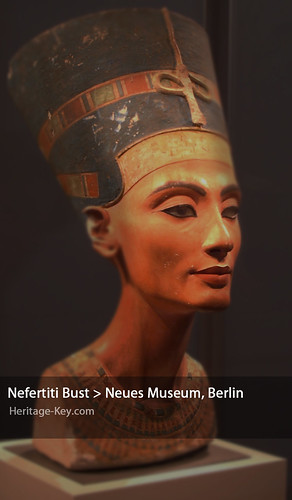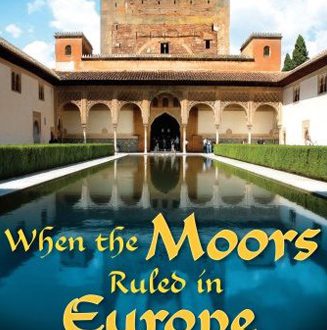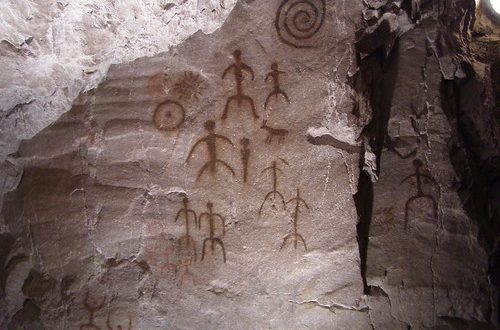The opening of Berlin’s Neues Museum and its ceremonial re-unveiling of the Bust of Nefertiti has provided a stark contrast to the recent climate on the repatriation of ancient artefacts. At the forefront of the debate is Zahi Hawass, chief of Egypt’s Supreme Council of Antiquities (SCA): marauding worldwide with dossiers in hand, strong-arming museums into giving Egypt back its most prized possessions. Dr Hawass even sent one of his antiquities droogs to Berlin this month with a letter for the Neues‘ director. One can imagine it won’t be a shining eulogy to his work.
Dr Hawass’ Famous Five
“We own that stone, the motherland should own this,” Dr Hawass told an Al-Jazeera audience two years ago, referring of course to the Rosetta Stone that now takes pride of place in the British Museum. Dr Hawass lists a top five “objects that Egypt, the homeland of the pharaohs, does not have”: The Rosetta Stone and Nefertiti’s bust; the Dendera Zodiac in the Louvre; the Statue of Hemiunu (the architect of the Great Pyramid) in Hildesheim Museum and the Bust of Ankhhaf (architect of Khafre’s Pyramid) at the Museum of Fine Arts, Boston. Dr Hawass can rant and rave about his ‘famous five’ ’til the cows come home. But what power does he really wield?
Give it Back – Or Else
Plenty, it seems – and there’s a feeling museums are beginning to fear the ‘Zahi Effect’. Two years ago Dr Hawass started an offensive against the StLouis Art Museum for their purchase of the mask of Ka-Nefer-Nefer. When the museum refused to back down, Dr Hawass lauched a media war, and even distributed leaflets to the city’s schools telling them not to visit the artefact. This July saw the SCA suspend the Louvre’s research at Saqqara over its alleged theft of tomb fragments from Thebes. The fragments were hastily handed back and work duly resumed. New York’s Metropolitan Museum went one step further last October, buying an ancient shrine fragment solely to send it back to Egypt. Dr Hawass’ position is clear: “If any museum will not co-operate with us, if any museum will not be fair with us, what we should do is stop any scientific operation (with) this museum.
 But before you get the idea Dr Hawass is sitting in a gold-plated room, stroking a white cat and laughing maniacally at the money coming in from all his repatriated treasures, he is a man of immeasurable worth to the world of antiquities: fighting black markets and looters who threaten to dilute the planet’s ancient past in countries as far apart as Iraq, Bulgaria, the US and Guatemala. He has recovered over 6,000 artefacts from private collectors, thieves and rogue dealers since he began his tenure in 2002.
But before you get the idea Dr Hawass is sitting in a gold-plated room, stroking a white cat and laughing maniacally at the money coming in from all his repatriated treasures, he is a man of immeasurable worth to the world of antiquities: fighting black markets and looters who threaten to dilute the planet’s ancient past in countries as far apart as Iraq, Bulgaria, the US and Guatemala. He has recovered over 6,000 artefacts from private collectors, thieves and rogue dealers since he began his tenure in 2002.
Dr Hawass also has a point when faced with the age-old question of whether returned antiquities can be as safe in Egypt as they are in their current homes. “Our museums now are more secure and the artefacts in a (more) beautiful display than many museums in Europe,” he argues. Having been to the Luxor Museum recently, I can vouch for him. And the more security is raised as a reason against repatriation, the more it seems a tired, desperate colonial attempt to keep something which doesn’t belong – a feeling echoed loudest in the British Museum’s stubborn refusal to hear Greece’s claims to the Elgin Marbles.
Repatriation could Destroy Archaeology
Yet some argue restrictions on artefact exports are doing more harm than good. John Tierney, writing in his New York Times column, says letting less go could be driving the trade underground: “Restricting the export of artefacts hasnt ended their theft and looting any more than the war on drugs has ended narcotics smuggling. Instead, the restrictions promote the black market and discourage the kind of open research that would benefit everyone except criminals.”
You could argue the real aim is to destroy illegal trade altogether, something Dr Hawass addressed at the start of his post with the invention of the Department of Stolen Antiquities. Experts are divided, however, on the department’s results and it might be more than a little nave to think we can stop a system that’s been working for thousands of years.
A Happy Medium?
James Cuno, Director of Chicago’s Art Institute, writes in his book Who Owns Antiquities? that archaeologists should go back to the days of partage, whereby experts agreed to take home a certain percentage of discovered artefacts. He sees scholars of today largely as sell-outs, ready to acquiesce all too easily to governments willing to use archaeology to propagandise. See Saddam Hussein’s shameful highjacking of Nebuchadnezzar’s name for the loudest recent example. Cuno believes westerners should be able to see Egyptian treasures just as much as Egyptians: they are “not, and can never be, the property of one modern nation or another.”
The Rosetta Stone, equally, would never have acquired the importance it now enjoys without international co-operation, something which could potentially vanish under Dr Hawass’ ‘Egypt-only’ views. Yet Cuno’s definition of a ‘modern nation’ is a dangerous one, and one which has been used far too often to argue against repatriation. ‘How,’ many westerners cry, ‘can Arab Egyptians claim artefacts back when they’ve got so little in common with ancient Egyptians?’ Well, if you’re going to use that argument you may want to take a look at the history of Egypt’s archaeology.
Many if not all of Egypt’s most precious items were taken under colonial rule, when the British and French were in charge. So what rights did London or Paris have to take objects back then? Surely it would cost someone across the world just as much to get to Luxor as the Louvre and a lot less to stay: all-but ending the argument that either the Louvre or the BM is a ‘global museum’.
The issues surrounding repatriation are many and complicated. Who own antiquities and who are responsible for them is one of history’s hottest topics, debated fiercely all over the world. “We have to follow those who steal our artefacts,” warns Dr Hawass. The question is, when is something stolen?
Have Your Say!
Should museums return artefacts?Are artefacts abroad hostages or ambassadors? What can be done to stop illegal treasure hunters destroying world heritage? Join the discussion at Heritage Key’s discuss page (visit here) and have your say!You can also get in touch via the , our contact page, or by emailing me direct. Heritage Key – Unlock the Wonders.




